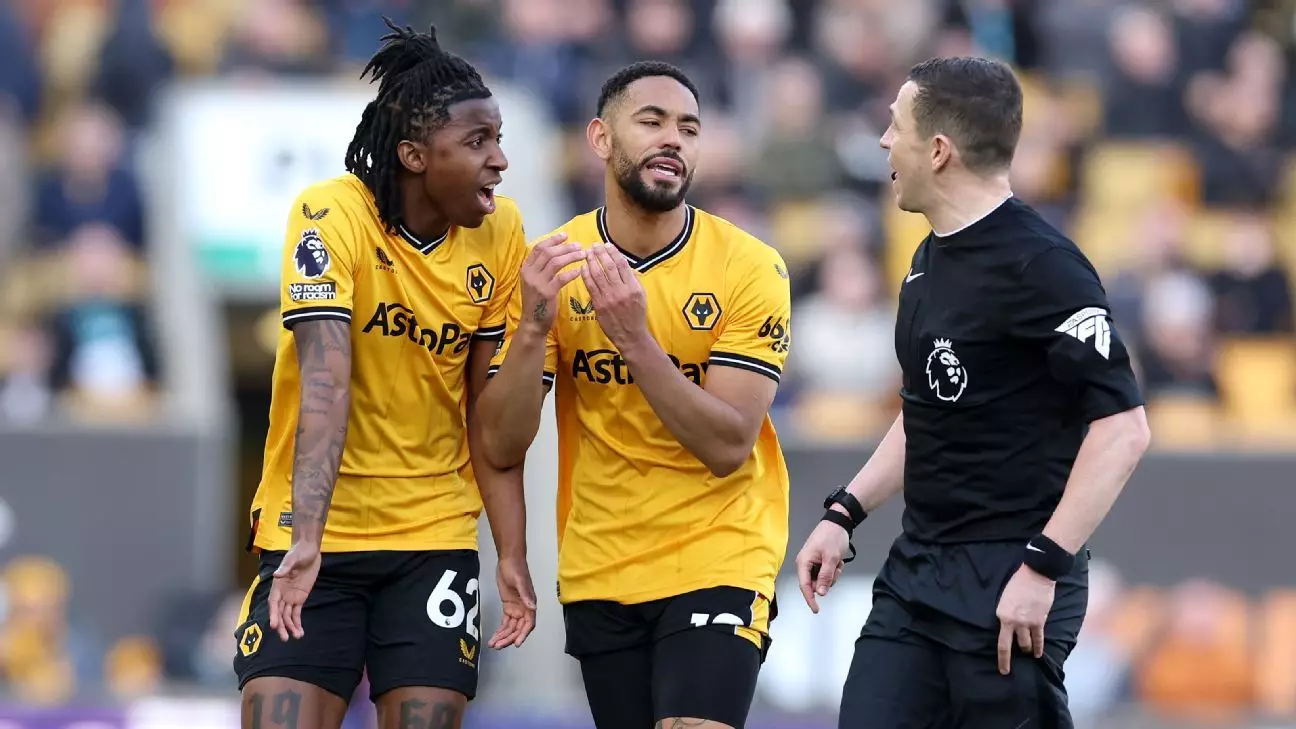The Wolves were left in disbelief after a controversial VAR decision robbed them of a late equalizer against West Ham United. Manager Gary O’Neil expressed his outrage at the decision, labeling it as one of the worst he had ever witnessed in his career. The decision came after Maximilian Kilman appeared to have scored the equalizing goal from a corner, only for the referee to consult VAR for a potential offside decision against Tawanda Chirewa. While Chirewa was indeed in an offside position, Kilman’s header was directed into the opposite corner, with Wolves arguing that West Ham goalkeeper Łukasz Fabianski had no chance of saving it regardless.
The 2-1 loss to West Ham kept Wolves in 11th place in the league standings, while elevating West Ham to seventh place, level on points with Manchester United. The highly contentious VAR decision soured what could have been a hard-fought draw for Wolves, leaving both the players and coaching staff frustrated and disappointed. O’Neil had to step in to calm down his coaching staff at the final whistle, reflecting the emotions running high among the Wolves camp.
Criticism of the Decision
The decision to disallow the equalizer was heavily criticized by O’Neil, David Moyes, and Fabianski, with all parties labeling it as scandalous, terrible, and horrendous. O’Neil questioned the rationale behind the decision, highlighting that Chirewa did not impede the goalkeeper in any way that could have affected the outcome of the goal. He further emphasized that the decision seemed inexplicable, especially given the technology and resources available for the match officials to review the incident.
The Wolves’ disappointment was compounded by a sequence of events that led to their defeat against West Ham. After taking a deserved lead through a Pablo Sarabia penalty, the Wolves allowed West Ham to claw their way back into the game with a penalty from Lucas Paquetá. The game took a dramatic turn when James Ward Prowse scored directly from a corner with a beautifully curled effort, putting the visitors in the lead. The Wolves fought back valiantly but were ultimately denied an equalizer in a cruel twist of fate.
The entire match between Wolves and West Ham showcased the unpredictability and contentious nature of football, especially with the introduction of VAR. The use of technology in decision-making has brought about a new layer of scrutiny and debate in the sport, with incidents like the one involving Wolves and West Ham rekindling discussions about the efficacy and fairness of VAR. The aftermath of the match served as a reminder of the emotional rollercoaster that football can be, with decisions having the power to alter the course of a game and impact the morale of the teams involved.
The Wolves vs. West Ham match was a stark reminder of the fine margins and controversies that define football. The VAR decision that denied Wolves a crucial equalizer will undoubtedly linger in the minds of the players, coaching staff, and fans alike. As football continues to evolve with technology and modernization, the debates surrounding VAR and its implications for the game will persist, leaving a lasting impact on the sport as a whole.
